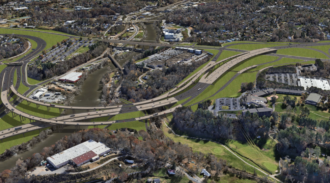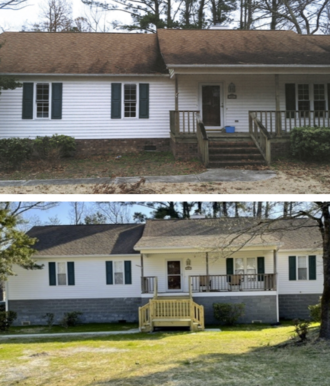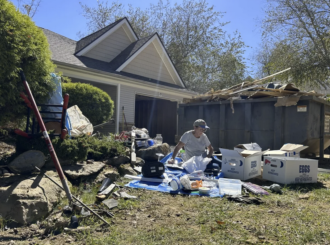Edwards, who breezed to reelection last November in the staunchly conservative 11th Congressional District, held eight in-person town halls in his first term and had another planned but had to cancel it due to Tropical Storm Helene.


Edwards, who breezed to reelection last November in the staunchly conservative 11th Congressional District, held eight in-person town halls in his first term and had another planned but had to cancel it due to Tropical Storm Helene.

NCDOT approved the change more than a year ago, but it was not publicly acknowledged until Watchdog’s query.

Mission’s appeal, brought against the N.C. Department of Health and Human Services and the Division of Health Service Regulation, says those agencies’ decisions curbed Mission’s expansion efforts.

On Monday, the DHHS sent a list to the media. But it contained names only — no ages, circumstances or causes of death, or even a county where each person lived or died.

By now, this story of locals living in flimsy tents post-Helene has taken on a life of its own. So where does the truth lie? Are we edging into urban myth territory, or are our neighbors toughing out the coldest temperatures of the year in lightweight tents?

“Out of 159 samples taken from mid- to late-November, nine had detectable levels of lead on the first draw,” said Water Resources spokesperson Clay Chandler.

The city and the Corps planned to start testing the system this week, and Asheville Water Resources spokesperson Clay Chandler said it should be operational by Friday.

The 34-bed Asheville Specialty included a comprehensive stroke center, dialysis services, physical and speech therapy, and traumatic brain injury rehabilitation, among other services, according to Mission’s website.

The delegation of regional officials traveling to Washington is believed to be unprecedented, but “we have literally never seen a disaster like Hurricane Helene,” Amanda Edwards, chair-elect of the Buncombe County Board of Commissioners, told The Watchdog.

The possibility of drinkable water being restored by Wednesday next week speeds up the timeline by nearly a month. Water Resources estimated earlier in November that the boil water notice could be lifted by mid-December.

Chandler and Dr. Jennifer Mullendore, medical director for Buncombe County’s Department of Health & Human Services, repeatedly stressed that students were not exposed to lead in drinking water.

“What we’re particularly concerned about is the fine particles from open burning that we expect we’re going to see more of,” AB Air Quality Agency Director Ashley Featherstone said.

Local homeowners who lost their homes or sustained serious damage in Helene’s floodwaters can begin applying to a federal program that may buy the home outright, or pay to have it elevated or rebuilt at a higher level.

Four stores – in Swannanoa, Morganton, Newland and Spruce Pine – remain closed and are not expected to open for three to nine months.

The curtain installation should take 24 to 36 hours, meaning the mineral application could possibly start by late Tuesday afternoon.

The loss of lives, 13 total, made the Garren Creek landslides among the deadliest in North Carolina history and accounted for the largest cluster of deaths from Helene in Buncombe County, more than one quarter of the 42 in the official count of fatalities.

Water Resources Department spokesperson Clay Chandler spent most of his time at the daily Helene briefing on Wednesday talking about the water testing program, but he said afterward it does not come in response to customer complaints.

Following a tour of flood-ravaged Swannanoa on Monday, Republican presidential candidate Donald Trump offered his sympathy to storm victims. He also took numerous opportunities to continue to slam recovery efforts by the Federal Emergency Management Administration (FEMA).

Asheville Watchdog is bringing you the stories behind the staggering loss of life, the children, parents, grandparents, multiple generations of a single family, all gone in one of the worst natural disasters to hit the mountains of western North Carolina. This is the first installment.

According to the agency, Buncombe County suffered 42 deaths, the highest toll of the 21 counties listed. Yancey County had the next highest, with 11, followed by seven in Henderson County.

Buncombe homeowners hit hardest by flood damage from Hurricane Helene will likely face enormous costs to rebuild with limited options to pay for it.